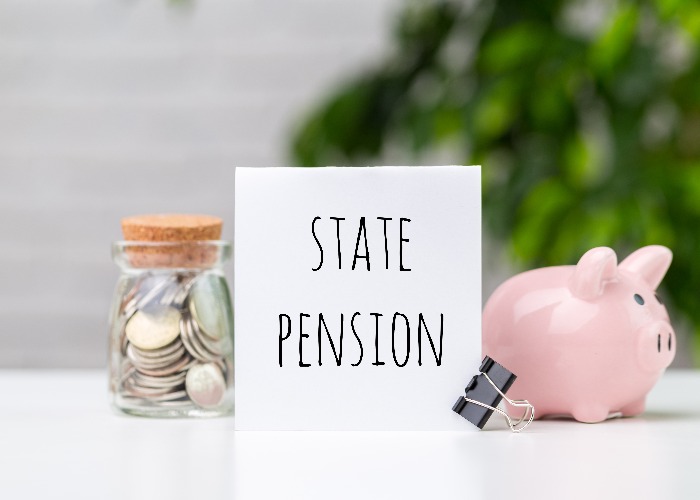How much the State Pension pays in 2025 and 2026

The amount that State Pension retirees will receive next April has now been confirmed. Read on to see how much the New and Basic State Pensions pay in the 2025/26 tax year and how much you'll get in 2026/27.
The State Pension pay rise for 2026/2027 has been confirmed at £573 after the final piece of information needed to make the calculation was published today.
This means those receiving the full amount will get £12,547 over the course of the financial year.
It will put the State Pension just a shade under the Personal Allowance of £12,570, which is the point at which you start paying Income Tax.
The rest of this article looks in more detail at how the State Pension increases are calculated and how much you can expect to receive.
But first, if you're retired and struggling to make ends meet, make sure you are receiving all these vital credits and benefits that you are entitled to.
If you still need help bringing in extra cash after you've finished working, take a look at this guide to boosting income in retirement.
How the 2026/27 State Pension rise was calculated
The rate at which the State Pension increases each year is calculated using what's known as the triple lock system.
In short, this means looking at three figures:
- Wage growth between May and July;
- Inflation as determined by the Consumer Price Index in September (released in October);
- 2.5%.
Whichever is the highest will determine the following year's State Pension rise.
Wage growth was initially confirmed at 4.7% in September, but has now been revised ever so slightly upwards to 4.8%.
As for the rate of inflation for September, this was confirmed at 3.8% earlier today (22 October), which means it is the inflation figure that will be used for the 2026/27 increase.
Now, let's take a look at how much retirees will get in pounds and pence.
Which State Pension are you eligible for?
As a result of our convoluted and, some would say, unfair welfare system, there are two different State Pensions.
There's the old Basic State Pension and the New State Pension, which pay two significantly different amounts.
The old pension is given to men born before 6 April 1951 and women born before 6 April 1953 and is notably less generous than the new State Pension.
As a case in point, those on the Old State Pension will only see their pay rise £431 in April compared to £560 for those on the new one.
Read more here: why almost seven million will be locked out of the full State Pension rise
How much the New State Pension pays in 2025/26
The New State Pension currently pays £230.30 a week, or £11,973 a year.
How much the old Basic State Pension pays in 2025/26
Those on the Old Basic State Pension currently get £176.45 a week, or £9,175 a year.
How much the New State Pension pays in 2026/27
The New State Pension is expected to increase to £241.30 per week, or £12,547.60 annually, in April 2025.
How much the old Basic State Pension pays in 2026/27
Those on the Old Basic State Pension will likely receive £184.90 a week, or £9,614.80 a year, from April.
Past State Pension changes
Here’s how the State Pension has increased over the last few years.
|
|
How State Pension has risen in previous years |
|
April 2017 |
2.5% |
|
April 2018 |
3% |
|
April 2019 |
2.6% |
|
April 2020 |
3.9% |
|
April 2021 |
2.5% |
|
April 2022 |
3.1% |
|
April 2023 |
10.1% |
|
April 2024 |
8.5% |
|
April 2025 |
4.1% |
|
April 2026 |
4.8% |
Boosting your pension income
If you're struggling to make ends meet in retirement, you must ensure you're getting all the help you're entitled to from the Government.
Sadly, it's pensioners on low incomes who are most likely to miss out in this regard, so we've put together this checklist of vital credits and benefits people can get in retirement.
If you've gone through the list and are still struggling financially, take a look at this guide to boosting your income in retirement and this piece on clearing debt.
Want more stories like this? Visit the loveMONEY homepage or sign up for our daily newsletter and let us send the news to you!
More from loveMONEY:
State Pension mistakes that impact how much you get paid
Deferring your State Pension: how much can you get and is it worth it?
Find out how much you need to save for retirement
Comments
Be the first to comment
Do you want to comment on this article? You need to be signed in for this feature